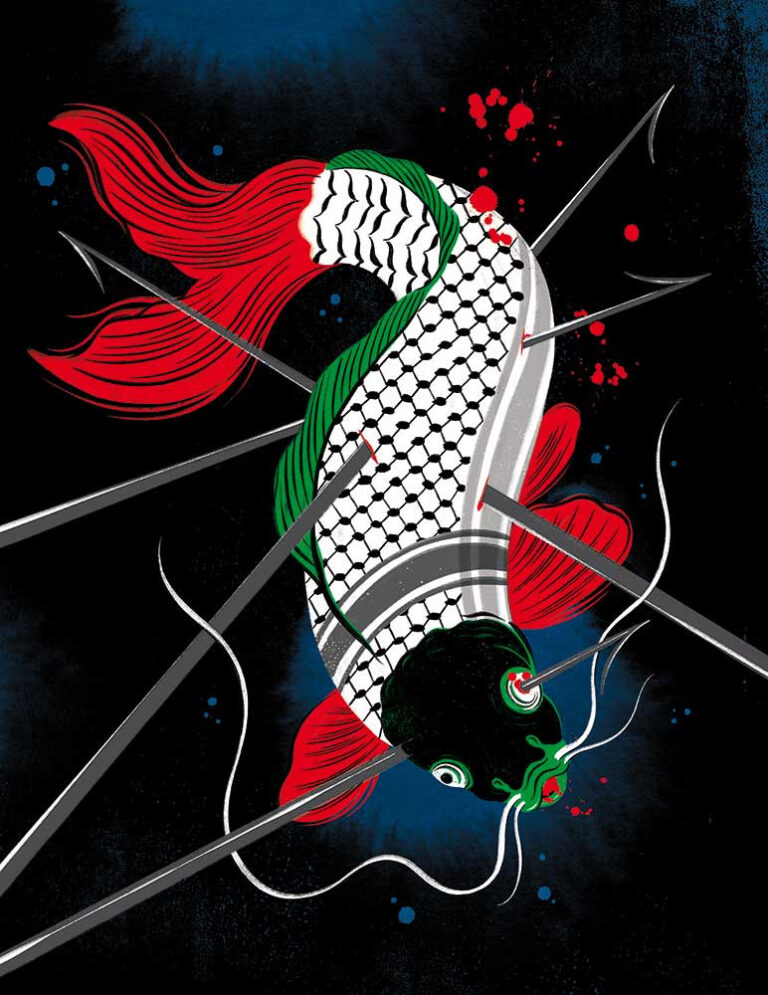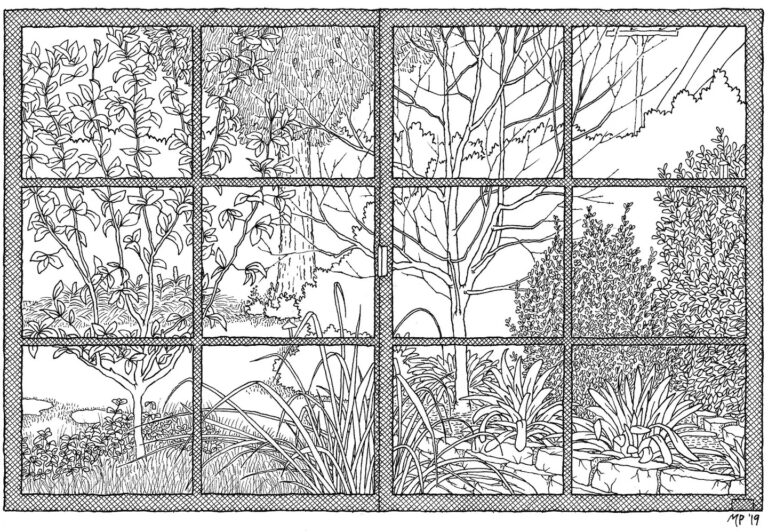Viet Thanh Nguyen writes about how HBO’s Watchmen fails its Vietnamese characters in this op-ed for The Washington Post.

Alert: Spoilers exist below.
Vietnamese people have dwelled uneasily in the American imagination since the American war in Vietnam. They existed, first, as children in need of guidance. As John F. Kennedy put it in 1956, “If we are not the parents of little Vietnam, then surely we are the godparents.” The Vietnamese who did not want that guidance became a new version of an old scare, the “yellow peril” threatening the West. Ever since, we’ve wavered between these twinned images, as grateful beneficiaries of American paternalism or inscrutable ingrates. Our appearances in pop culture have stayed within a narrow set of archetypes: refugees, gangsters, prostitutes, Viet Cong, and incompetent or corrupt South Vietnamese soldiers.
The Watchmen superhero universe, which imagines a timeline in which the United States won the Vietnam War, has drawn on these stock figures. In a scene explicitly recalling “Apocalypse Now,” the 2009 movie featured a gigantic Dr. Manhattan striding over the landscape, firing blasts from his hands that blow Viet Cong troops to shreds. Then one of his antihero colleagues, confronting his pregnant Vietnamese mistress, shoots her dead. These ugly moments clearly intend to evoke the idea that war is hell, and that the war in Vietnam was a particularly bad one, bringing out the worst in Americans. But they also do something typical of Hollywood: They reduce the Vietnamese to subhumans who exist only to die.
So, tuning into the critically lauded HBO series, I was excited and wary. “Watchmen,” the show, extends what had been a mere thought experiment in the original graphic novel: After the war, the United States turns Vietnam into the 51st American state, which becomes the birthplace of the series’s heroine, Angela Abar (Regina King), a cop who is the daughter of an African American soldier and his wife. The show also presents viewers with a prominent Vietnamese character, Lady Trieu (Hong Chau), a trillionaire scientist who has enigmatic ambitions (and a bad haircut that no Vietnamese woman would tolerate), and her precocious daughter, Bian. These figures mark a substantial advance for American pop culture: There is not merely one named Vietnamese character, but two! And they speak! In fluent English!
But while I agree with the critical enthusiasm for the show’s artistry, my hopes were soon frustrated. “Watchmen” has received well-deserved plaudits for its intense focus on racism as America’s core evil: Its main villains are terrorists descended from the Ku Klux Klan. Ultimately, though, the show falters in its handling of the war. This is not simply a cosmetic mistake or a trivial omission in an otherwise well-meaning effort at “diversity” or “inclusion.” Rather, the circumscribed depiction of the Vietnamese indicates a reluctance to grapple with America’s imperial power and its entwinement with white supremacy.
The template for understanding the intersection of these forces comes from Martin Luther King Jr.’s powerful antiwar speech, “Beyond Vietnam.” In it, King criticized the U.S. policy of diverting funds from alleviating domestic inequality and toward what he saw as a racist war. He also described the tragic irony of sending poor young black men overseas, ostensibly to defend the freedom and democracy of Southeast Asians, when they were not guaranteed those things at home. There, these poor young black men experienced a bitter reality: They finally stood shoulder to shoulder with white men as equals in the military but only “in brutal solidarity” against Southeast Asians. King demanded that Americans hear the voices of the Vietnamese in their suffering, and he called on them to march in the streets in protest. He predicted that if the war was not stopped, Americans would be condemned to march and march and march again in the future. King prophetically understood how white supremacy and anti-blackness connected to America’s foreign wars, past, present and future. Tellingly, most Americans know King’s “I Have a Dream” speech, about domestic racial inequality, while few have heard of “Beyond Vietnam.”
“Watchmen” only partially understands the war’s significance. One particularly sophisticated story line follows how a suicide bomber in Saigon orphaned its central character, Angela. Perceptively, the show imagines that while some of the Vietnamese are content being Americans, others are incensed at the occupation. That the imagined occupiers include nonwhite people acknowledges the complicated role that African Americans have always played within a globally powerful United States — a country that needs black soldiers and yet is also deeply racist and anti-black.
But the show’s engagement with Vietnam stops there. Angela herself does not express many feelings about or reactions to her birthplace. While she links Dr. Manhattan’s killings to the blowback deaths of her own parents, she exhibits almost no resentment about his actions. Her urgent awareness of white supremacy is not matched by equal awareness about American imperialism — or, it seems, any awareness at all.
Lady Trieu could have filled that gap in Angela’s (and the audience’s) understanding. In some ways, she embodies the Asian American as model minority: super intelligent, wealthy and powerful, technologically masterful and ruthless. But she is also named after one of Vietnam’s legendary female warriors, who helped lead the fight against Chinese colonization. The finale, unfortunately, forecloses much of the plot’s potential — both for Vietnamese agency and for the critique of American imperialism. When Lady Trieu attempts to kill Dr. Manhattan and appropriate his powers, she, in turn, must be killed.
I’m not arguing that the show should have made her character into an unalloyed savior: In the moral world of “Watchmen,” egomaniacs with absolute power can seem just as dangerous as white-supremacist organizations. It would have been just as satisfying to see Lady Trieu as a fallen hero, a Lucifer crowned by a silk khan dong.
But that did not happen. “Watchmen’s” Vietnamese characters never get the same interiority and backstory that are granted to white and black characters. Their actions are consequential but inexplicable, their motivations rootless. In one particularly lurid example, Lady Trieu’s mother steals a supervillain’s semen, presumably to birth a genetically gifted daughter. But for what reason? We never find out. As for Lady Trieu herself, she does get some lines in which she explains her actions: She wants to use Dr. Manhattan’s powers to destroy nuclear weapons and solve world hunger. But that reasoning seems baffling, almost random — certainly tangential to the show’s central concern with the evils of racism.
What the Vietnamese characters really needed was one more episode — their own version of the superb Episode 6. Delving into the backstory of a black superhero, Hooded Justice, that chapter rendered a previously mysterious character human and knowable. It gave his actions the weight of history, and bound black heroism to white racism. On the one hand, an additional episode is not asking for much. On the other hand, it asks for a great deal — namely one of the most difficult things for Americans to grapple with: their history and their present as an imperial power. That superpower is too often used to kill or sponsor the killings of people beyond the borders of the United States. That superpower has a little-understood origin story, in which the rise of a globally dominant America is inextricably linked to the rise of a white-supremacist America. And that superpower is too rarely used to save the world.


